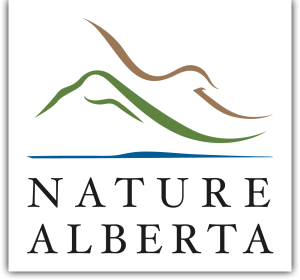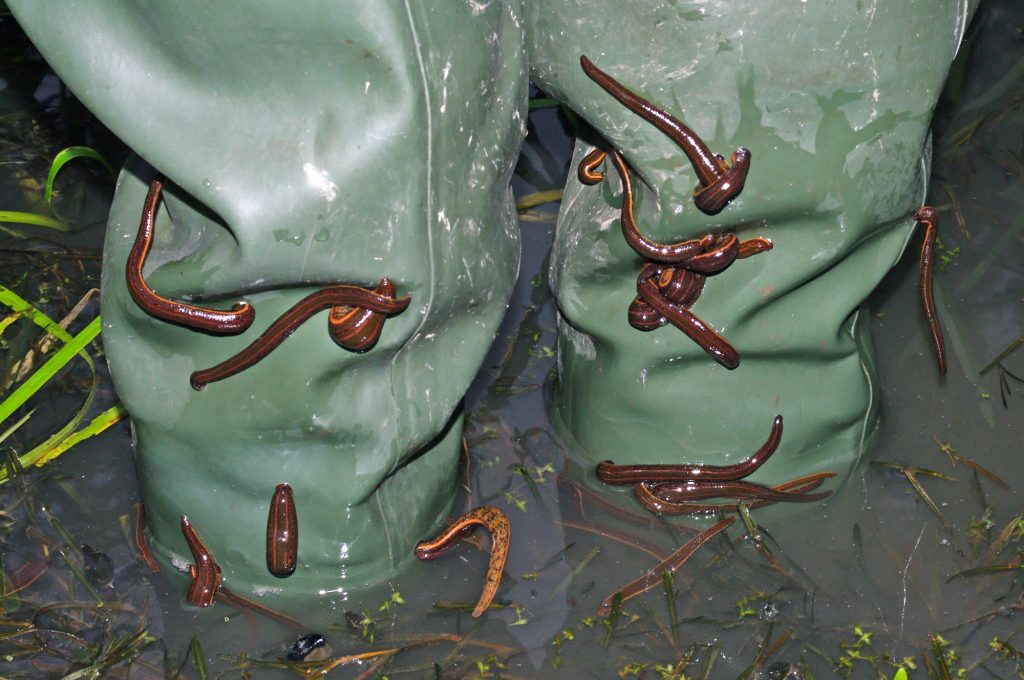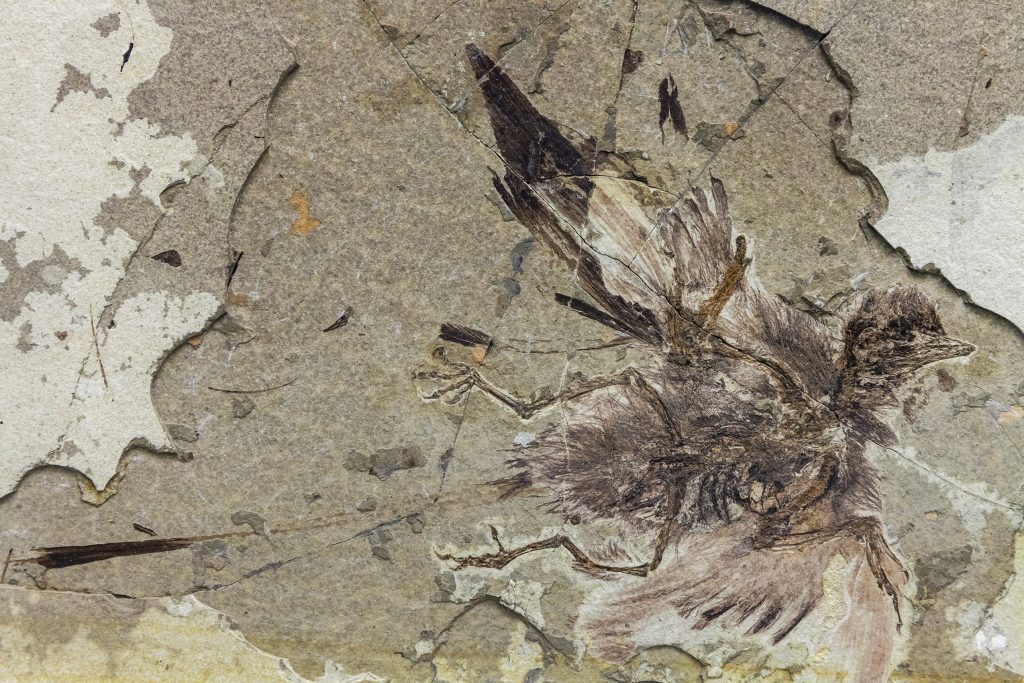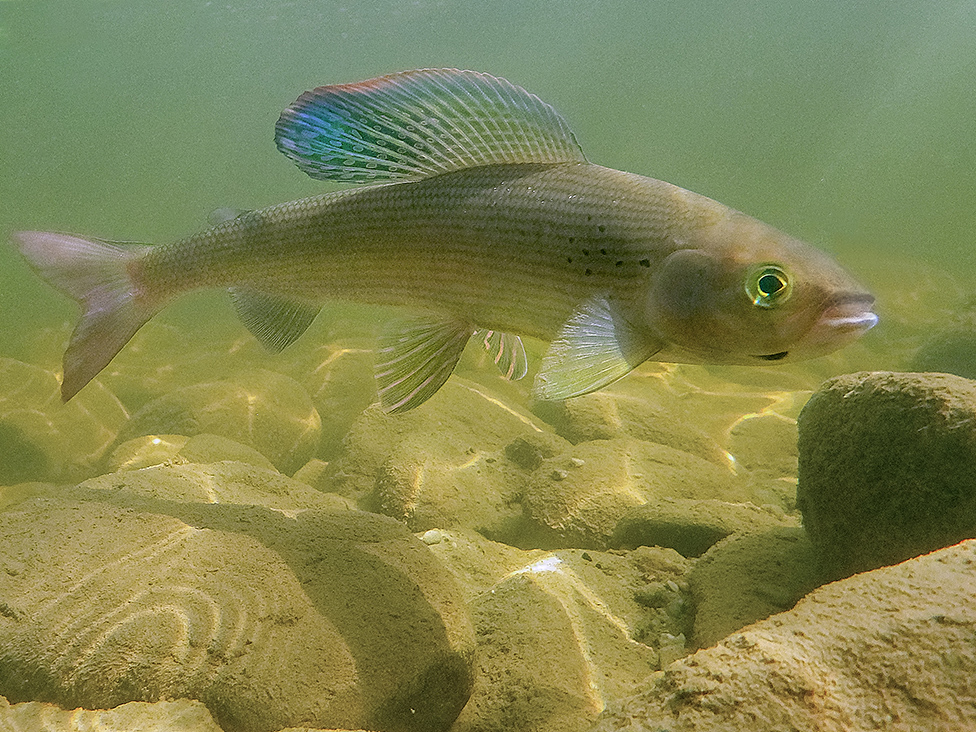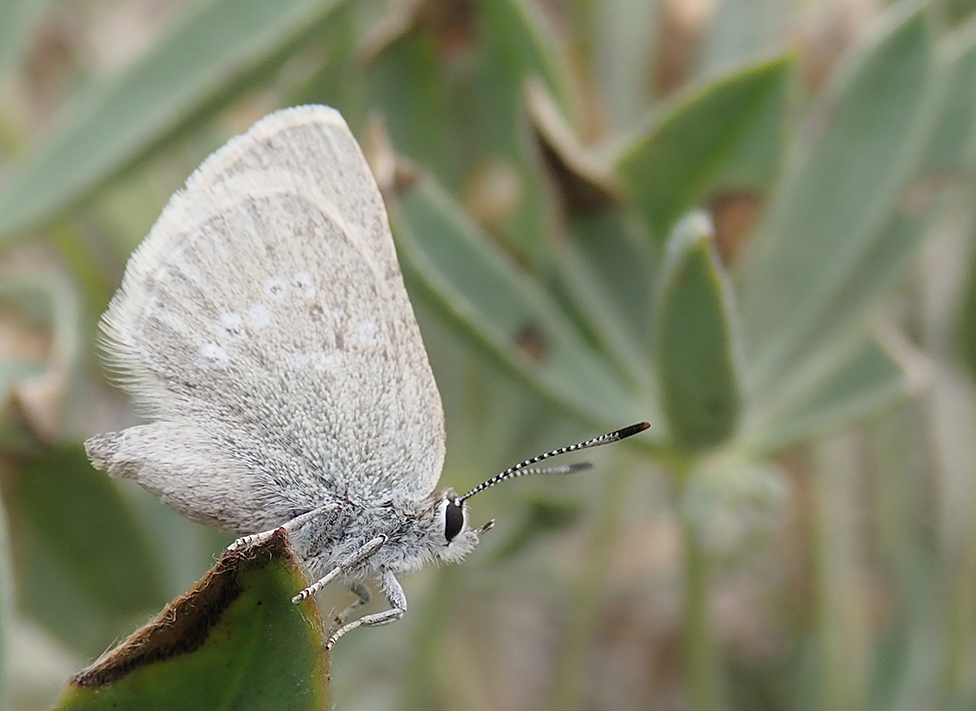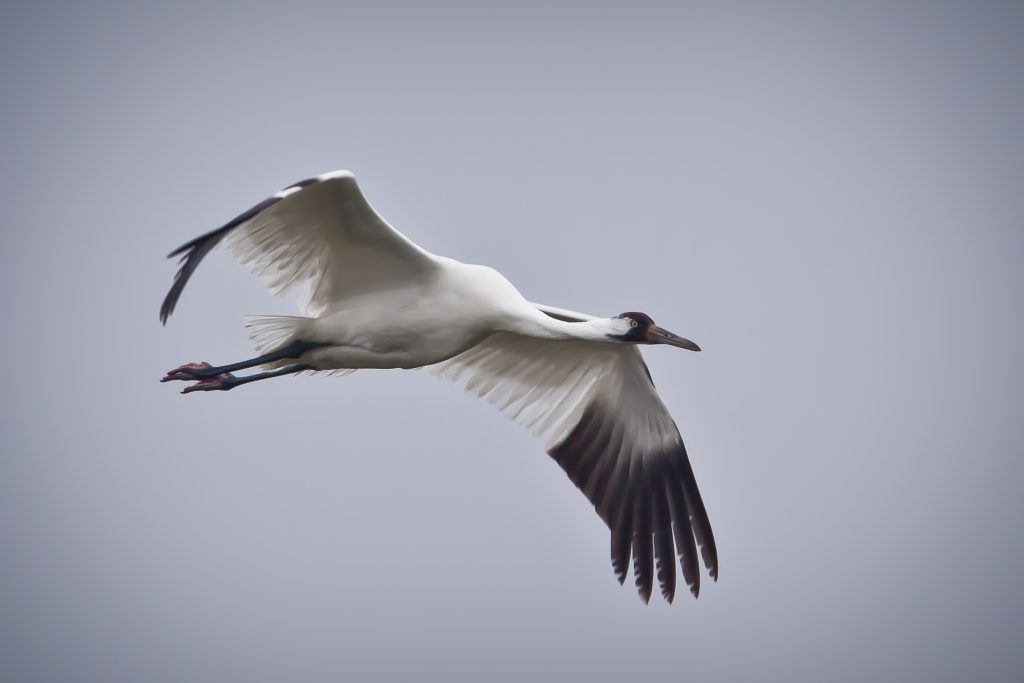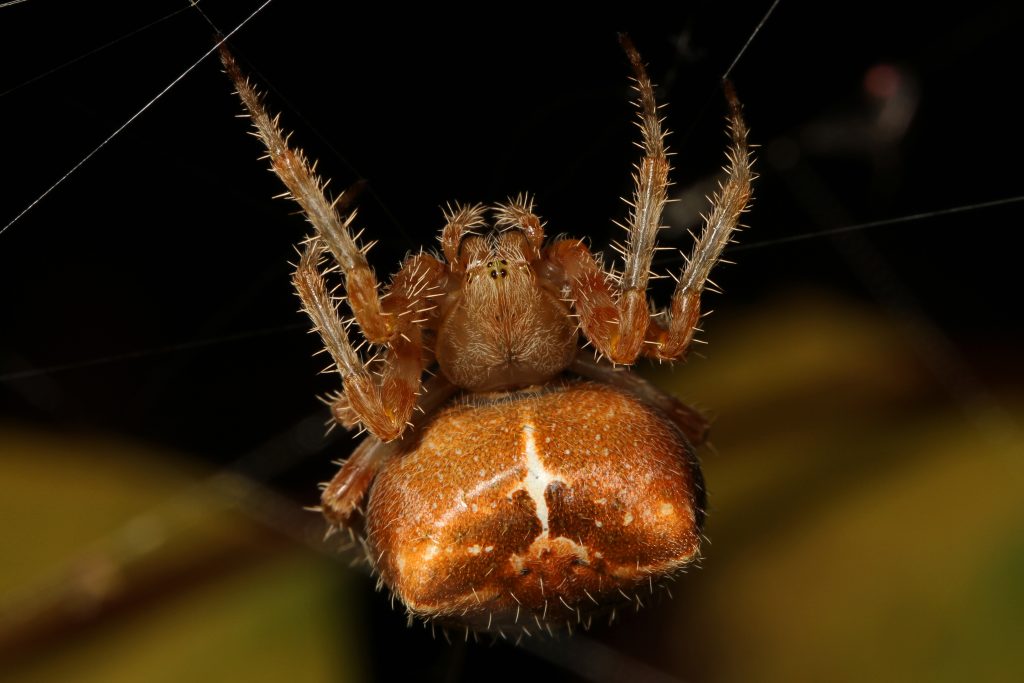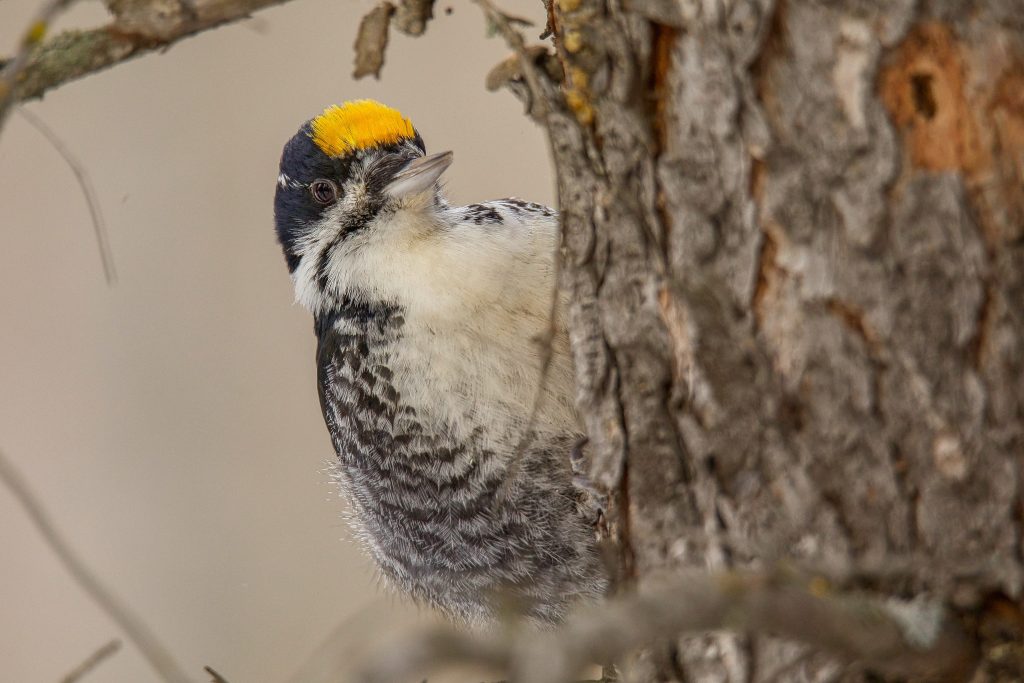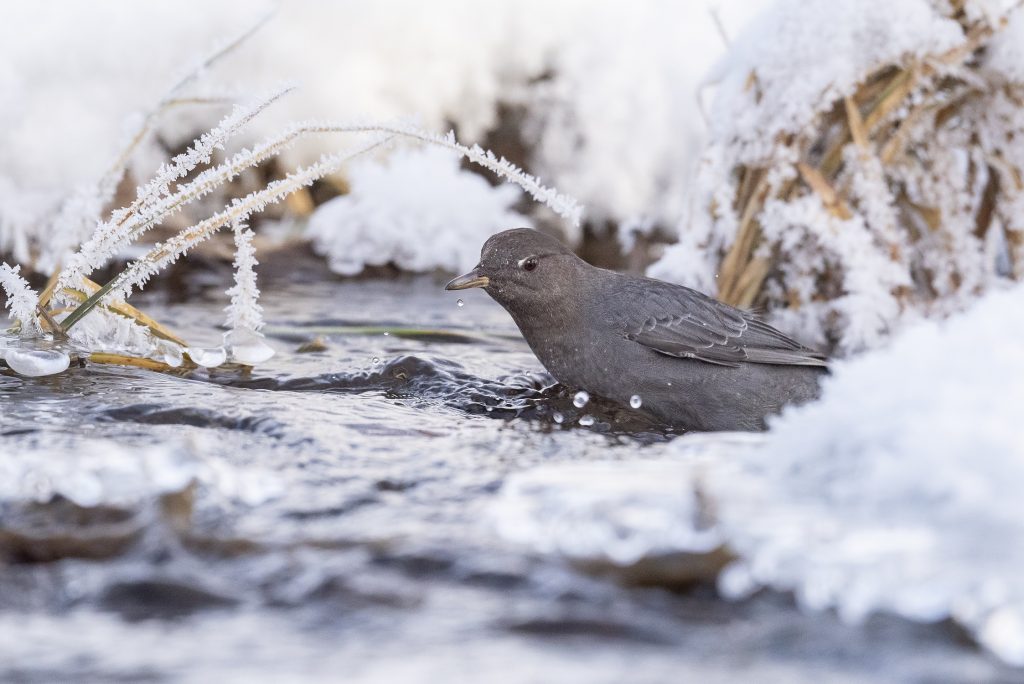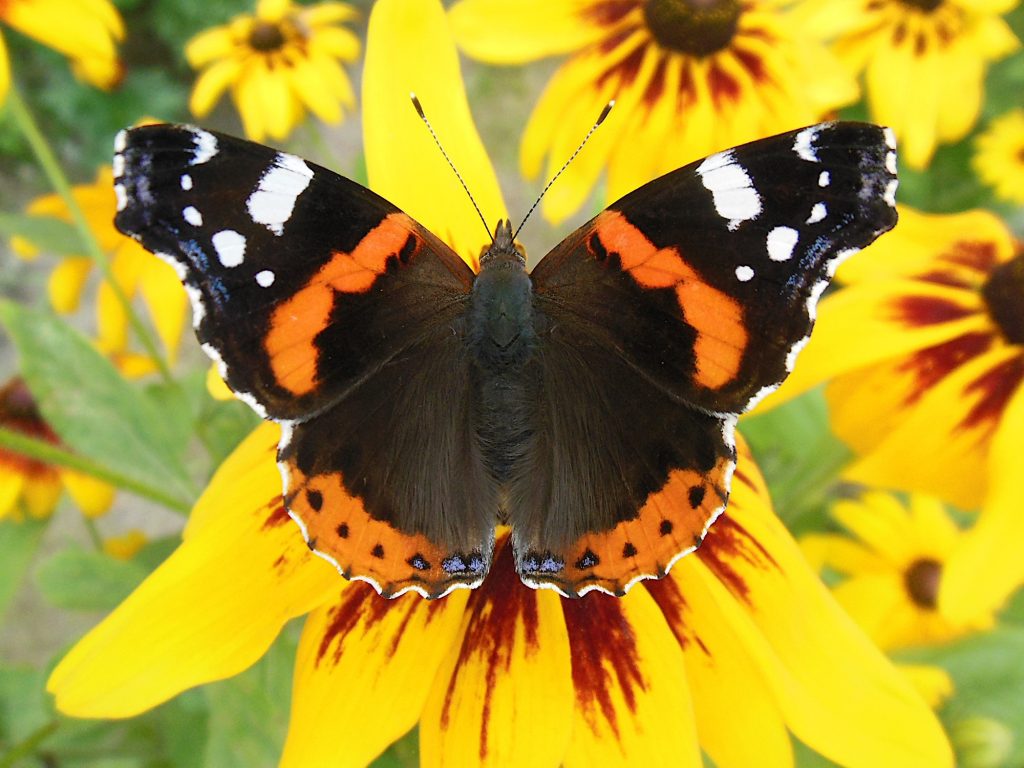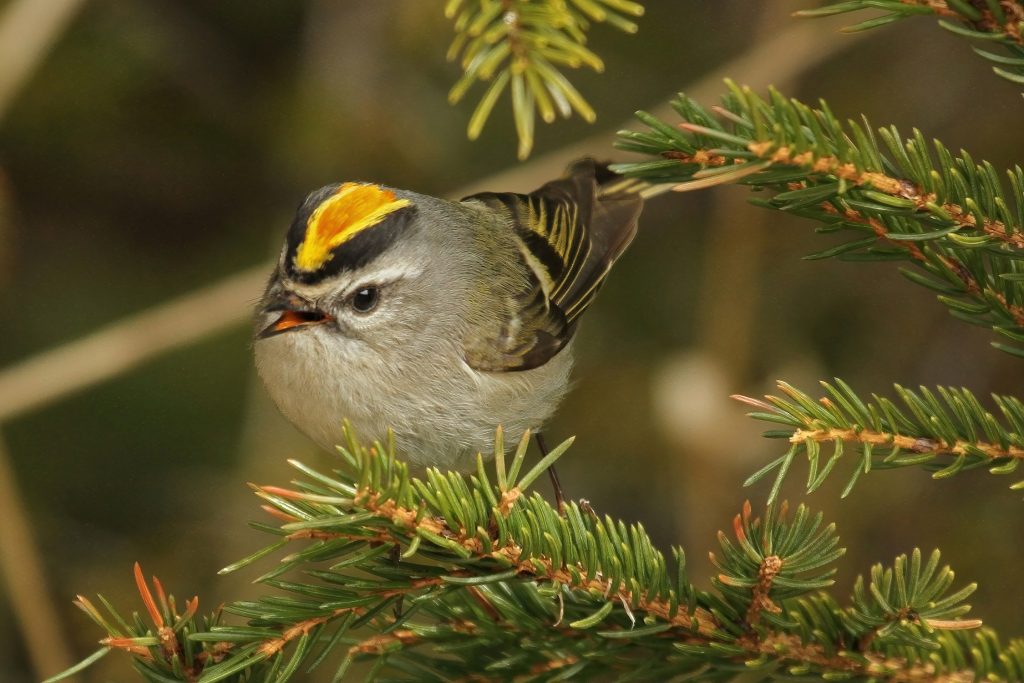Featured Species
Bloodsucking Leeches: More Than Just a Horror Icon
BY CHERYL TEBBY
Popular depictions of leeches often include concentric rows of sharp, fang-like teeth, or maybe an elongate ventral sucker that enables them to cling to their victim like the sticky-hand toys found in birthday “goody bags.” But in real life, leeches are a little more prosaic, much less horror-movie monster.
Read MoreHow to Build a Bird: The Story of Avian Evolution
BY RICHARD SCHNEIDER AND NICK CARTER
The origin of the avian body plan is not something bird watchers often think about. With so many species to find and identify out there, what does it matter how they originated? However, the story of bird evolution is a fascinating one, and understanding it can bring great enrichment to the hobby of birdwatching.
Read MoreArctic Grayling: The Jewel of Canada’s Northern Waters
BY JESSICA REILLY
I spend my free time studying Arctic grayling, and it captures every ounce of my curiosity. Arctic grayling have striking colouration with large dorsal fins reminiscent of a marine sailfish. They are aggressive feeders and fun to catch on a fly. In studying them, we learn more about the ancient processes that led to the rich mosaic of biodiversity around us today.
Read MoreSurvival Against the Odds: Alberta’s Half-moon Hairstreak Butterfly
BY BENNY ACORN
Waterton Lakes National Park is truly one of the most remarkable areas in all of Alberta, where natural beauty is partnered with rich and unique biological diversity. Although you would not expect it, the story of one of Alberta’s rarest insects begins here, under the late-winter snow. This is a story of unexpected alliances, remarkable specialization, and perseverance in the face of catastrophic adversity, and it all takes place on the Blakiston Fan.
Read MoreWhooping Cranes: Step by Step, Egg by Egg, Towards Recovery
BY HIRA SHAH
The whooping crane was once widely distributed across North America, but by the 1940s, hunting and habitat loss had reduced the species to only 21 birds. Wood Buffalo National Park remains the only place in Canada where whooping cranes nest.
Read MoreSpiders: The Misunderstood Jewels of Alberta’s Biodiversity
BY JAIME PINZON
Alberta is home to 628 species of spiders, representing almost half of those recorded in Canada. That’s more than the number of bird species we have in the province. Despite this great diversity, you are unlikely to encounter more than a small fraction of these species because many of them are either too small, have cryptic behaviours, or live in remote habitats.
Alberta’s “Other” Woodpeckers
BY NICK CARTER
Alberta is rich in woodpeckers, from common backyard visitors like the little downy woodpecker to the crow-sized pileated woodpecker with its flaming crest and manic voice. But there are a couple of interesting species that often get overlooked.
The Aquatic Songbird: American Dippers
BY MARK BRADLEY
American dippers are plump little birds, 18–21 cm, that weigh about 50 grams (roughly the weight of a golf ball). Both sexes have a slate-grey body with a brownish-grey head, an upturned tail, and flashing white eyelids.
Read MoreButterflies for Beginners
BY NICK CARTER
My experience is that once you’ve been bitten by the entomology bug, you won’t look back. A good place to start, if you are keen to expand your biodiversity horizons, is butterflies. Butterflies provide a good introduction to the world of insects for a variety of reasons. Many species are bright, colourful, and not too hard to find.
Read MoreThe 20,000-Year-Old Story of the Golden-Crowned Kinglet
BY DANIKA SCHRAMM
The last Ice Age had an enormous impact on Canadian species, in some cases creating genetically distinct populations. To illustrate how geneticists have arrived at these conclusions, I’m going to walk through a real-world example from my own research on golden-crowned kinglets, one of North America’s smallest passerines.
Read More